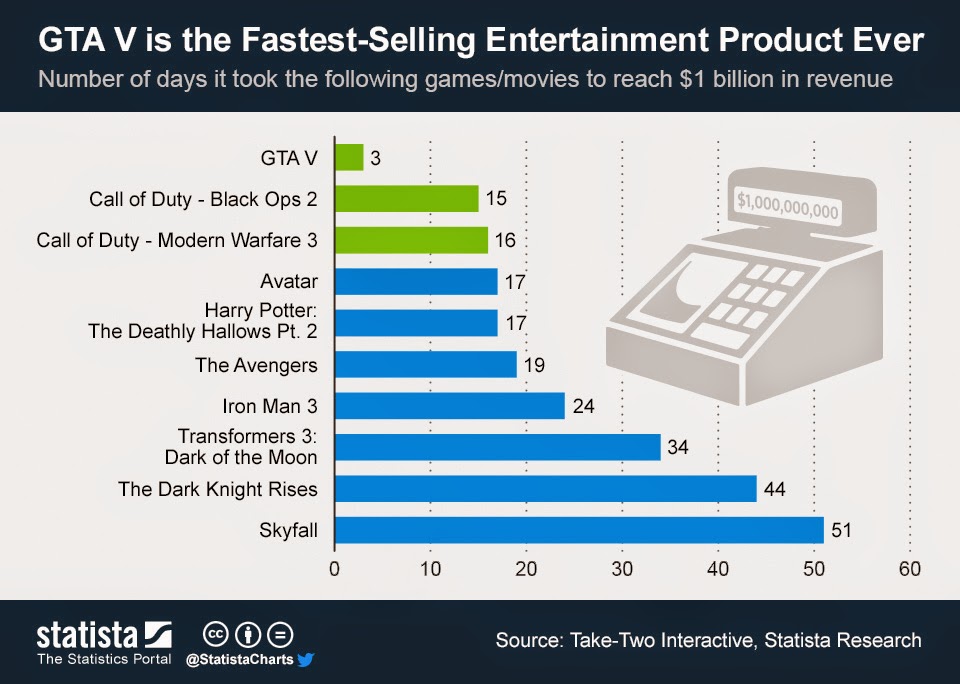There’s a great article over at www.fastcompany.com asking the question “why do video games succeed where movies do not?” You can give it a read here:
http://www.fastcompany.com/3021008/why-video-games-succeed-where-the-movie-and-music-industries-fail
I won’t go through the article in detail as it pretty much explains the point perfectly itself, but there are some interesting notions in it.
Firstly; the highest grossing video game of all time (GTA V) cost more than almost every movie at a $266 million development cost (Pirates of the Caribbean: At World’s End being the exception) and also had the biggest launch success of any piece of entertainment, taking in $800 million on its first day.
Secondly; whilst the video game industry is on the rise, with a projected total growth of $67 billion in 2013 rising to $82 billion in 2017, the film industry hit a $94 billion low in 2010, dropping 17% after inflation from 2001.
 |
| Graph showing the financial success of 'GTA V' compared to other large media releases |
Secondly; whilst the video game industry is on the rise, with a projected total growth of $67 billion in 2013 rising to $82 billion in 2017, the film industry hit a $94 billion low in 2010, dropping 17% after inflation from 2001.
Asking why the games industry continues to ascend whilst the movie business remains stagnant, the article picks out a few very interesting points:
First and foremost, as opposed to films now a days, you cannot easily pirate video games. Dedicated consoles, anti-piracy measures and the social aspect of subscription play services make it harder not to pay – sure, it’s a forced moral win, but a win is a win.
Second; video games offer players control over their time and money: play when you want, for as long as you want and spend as much as you want – with cinemas you’re tied into a schedule, and even with home TV you’re chained to the program running time. In this new world of digital content, second screens and social networking, being able to dive in and out of a game for 5 minutes is seemingly a very valuable asset.
Perhaps citing the most important point, the article ends on the opposing treatment of women in both the game and film industries. Video games have embraced the fact that 40% of their audience are women, and as a result have diversified to accommodate this fact. The film industry though, still predominantly targets a younger male audience, failing to recognise the diversity of the actual audience and provide content for it.
Video games are listening to what people want, are making that content and are allowing them to play it whenever they want. The film industry though, remains stubborn (for the most part) and tells the audience what they want to watch, when they want to watch it and how much they should pay for it. It will be interesting to see where this strategy has led them in a decade or so…
No comments:
Post a Comment